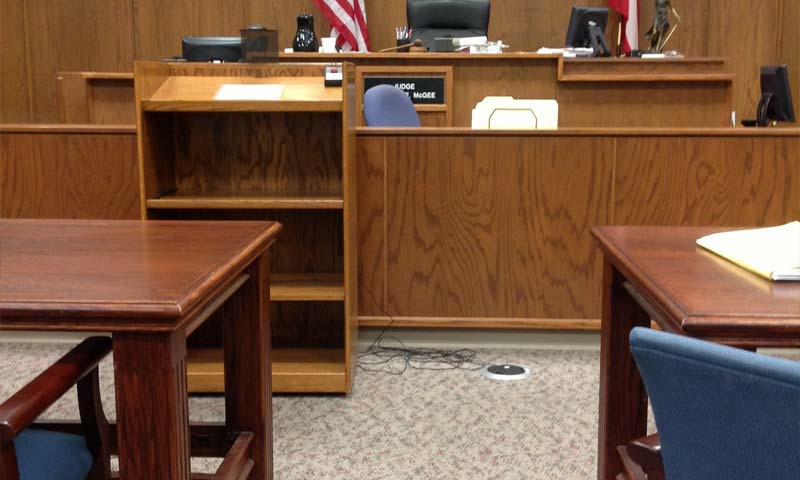Exploring Alternatives to Bankruptcy: Debt Consolidation vs. Bankruptcy
Understanding Your Financial Options
When facing overwhelming debt, it’s essential to explore all available options before making a decision that could impact your financial future. While bankruptcy is often seen as a last resort for debt relief, there are alternative paths to consider. In this comprehensive guide, we’ll explore two common alternatives to bankruptcy: debt consolidation and bankruptcy. By understanding the pros and cons of each approach, you can make an informed decision that aligns with your financial goals and circumstances.
The Basics of Debt Consolidation
Debt consolidation involves combining multiple debts into a single, more manageable loan with a lower interest rate. This approach simplifies your monthly payments and may reduce the total amount of interest paid over time. Debt consolidation can be achieved through various methods, including personal loans, balance transfer credit cards, or debt consolidation programs offered by financial institutions.
Pros of Debt Consolidation
One of the primary benefits of debt consolidation is simplicity. By consolidating multiple debts into a single monthly payment, you can streamline your finances and avoid the hassle of managing multiple accounts. Additionally, debt consolidation may lower your monthly payments and interest rates, making it easier to repay your debts over time.
Cons of Debt Consolidation
While debt consolidation offers benefits, it’s essential to consider potential drawbacks. Depending on your credit score and financial history, you may not qualify for favorable interest rates or loan terms. Additionally, debt consolidation does not eliminate your debts but simply restructures them, meaning you’ll still be responsible for repaying the full amount owed. If you’re unable to make timely payments on your consolidated loan, you could face further financial hardship.
Understanding Bankruptcy as an Alternative
Bankruptcy is a legal process that provides individuals and businesses with relief from overwhelming debt. It allows debtors to discharge certain debts and obtain a fresh financial start. While bankruptcy can have long-term consequences, it offers immediate relief from creditor harassment, wage garnishment, and foreclosure proceedings. Bankruptcy typically involves filing for either Chapter 7 or Chapter 13 bankruptcy, each with its own eligibility requirements and implications.
Pros of Bankruptcy
One of the primary advantages of bankruptcy is its ability to provide a clean slate for individuals burdened by unmanageable debt. Bankruptcy can discharge certain debts, such as credit card debt and medical bills, allowing debtors to regain control of their finances and rebuild their credit over time. Additionally, bankruptcy offers protection from creditor actions, such as wage garnishment and foreclosure, providing much-needed relief for individuals facing financial distress.
Cons of Bankruptcy
Despite its benefits, bankruptcy is not without consequences. Filing for bankruptcy can negatively impact your credit score and remain on your credit report for several years, making it challenging to obtain new credit or loans. Additionally, certain assets may be subject to liquidation in Chapter 7 bankruptcy, potentially resulting in the loss of valuable property. While Chapter 13 bankruptcy allows debtors to retain their assets, it requires adherence to a strict repayment plan for three to five years.
Choosing the Right Path for Your Financial Future
When weighing alternatives to bankruptcy, it’s crucial to assess your financial situation, goals, and priorities. Consider consulting with a reputable financial advisor or bankruptcy attorney to explore all available options and determine the best course of action for your individual circumstances. Whether you opt for debt consolidation, bankruptcy, or another debt relief strategy, taking proactive steps to address your financial challenges is the first step toward a brighter financial future.
Empowering Informed Decision-Making
Exploring alternatives to bankruptcy allows individuals to take control of their financial destinies and pursue a path toward debt relief and financial stability. By understanding the pros and cons of debt consolidation and bankruptcy, you can make an informed decision that aligns with your long-term goals and priorities. Remember, seeking professional guidance and support is key to navigating the complexities of debt relief and securing a brighter financial future for yourself and your loved ones.
Ready to explore alternatives to bankruptcy and regain control of your finances? Contact Brian Hiatt Law today for personalized guidance and expert assistance. Our experienced legal team is here to help you explore all available options and make informed decisions that align with your financial goals.



















